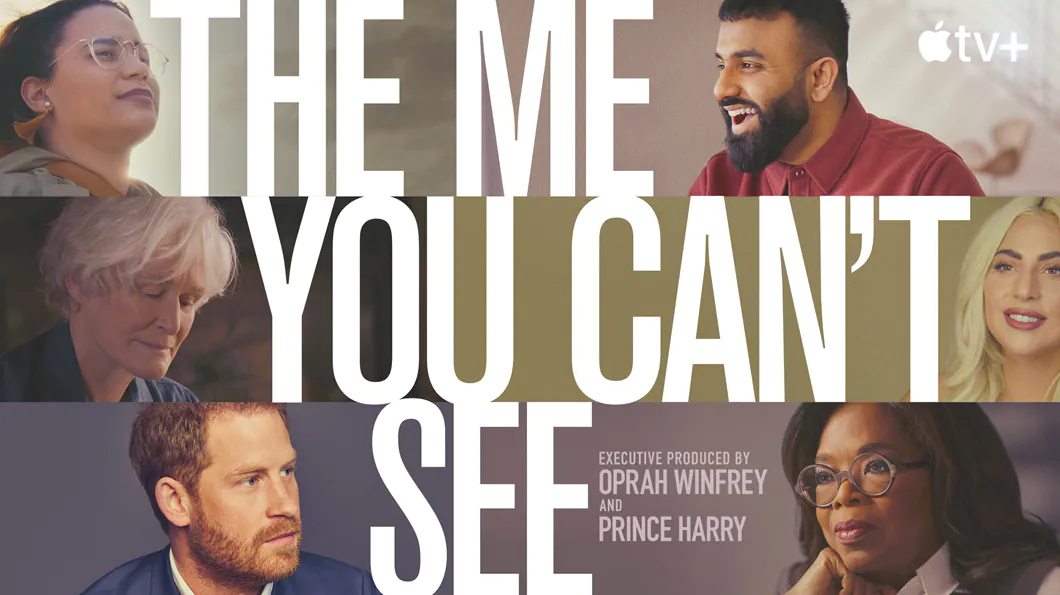Pain that is not transformed is transmitted, says Prince Harry. Someone once told him that, and it stuck with him. In Apple’s The Me You Can’t See, Harry bares his soul to Oprah Winfrey about getting the help that he so desperately needed. The documentary series, about mental health, is their way of paying it forward.
Harry discusses the event that convinced him to take remedial steps — the demonisation of his wife, Meghan Markle, and the reluctance of his family to provide any assistance to them. He returns to memories of his late mother, Princess Diana, and the trauma that her death left him with. He emphasises, over and over again, that he feared history would repeat itself; that the press would drain his wife of her will to live.
Watch The Me You Can’t See trailer here
In the first episode of the show, directors Dawn Porter and Oscar-winner Asif Kapadia, focus largely on Harry and Oprah, who also serve as executive producers. Archive footage of a young Harry and William, accompanied by Diana as they dodged the press, plays over his painful recollections of his youth. The environment he was raised in was so oppressive, he says, that his decade in the army was the happiest he’d ever felt.
Trauma takes root in different ways in different people. An inner-city Black man and a literal prince exist seemingly on the opposite ends of the social spectrum — but what connects them is a shared feeling of shame. Some are told to turn to God, others are told to suck it up, but few are encouraged to get help. Some — mostly men — turn to drugs. But addiction, as a doctor says in the show, cannot be considered a moral failing; it is a biological, often inherited vulnerability.
Oprah recalls an interaction with a class-full of schoolgirls who couldn’t cope with the safe space that she had provided for them, because their minds were so accustomed to pain. In a later episode, a Syrian child who fled from his country after watching his brother die in a bomb blast is asked to rate the sadness he is feeling on a scale of one to 10. “Seven,” he says, after the briefest of pauses.
There are two reactions you might have to this exchange. You might be struck by inadequacy, as you contemplate the legitimacy of your own emotions in comparison with this refugee child’s. Or you might wonder why he decided on 7/10. Does it mean that the kid knows this isn’t the lowest he is capable of feeling; that the depths to which his pain can plunge remain unexplored?

But Fawzi the Syrian refugee is getting help; there is comfort in knowing that. As are Ginny the boxer, Rashad the chef, and indeed, Prince Harry. He says he started therapy four or five years ago, and in one scene even invites the camera to witness one of his sessions.
The show can never replace the real thing, but I suspect that for audiences susceptible to feelings of vulnerability, it might be therapeutic in its own small way. It will reassure them that expressing weakness is nothing to be ashamed of. This might sound like an alien concept, especially in cultures like our own — Asian cultures where outward confidence is given undue importance — but conversations such as this cultivate change.
Also read: Minari movie review: A magnificent masterpiece that strikes universal chord, deserves all the Oscars
Only an evolved society can have discussions about mental health; one that isn’t preoccupied with money or obsessed about attaining some sort of social status. It is important to hear the stories of people with perceived privilege, because it normalises these emotions, and it normalises feeling these emotions.
PTSD doesn’t care if you have 12 Grammy Awards, or if you are a homeless runaway with abandonment issues. Lady Gaga’s struggles are just as valid as those of Alex, a young a woman that Oprah took under her wing a few years ago. She breaks down in one scene after a video call with her, convinced that no one, not even Oprah, understands what she’s going through. It’s heartbreaking.
A lot of people might believe in you, but all you need sometimes is for someone to believe you.
Follow @htshowbiz for more
The author tweets @RohanNaahar




